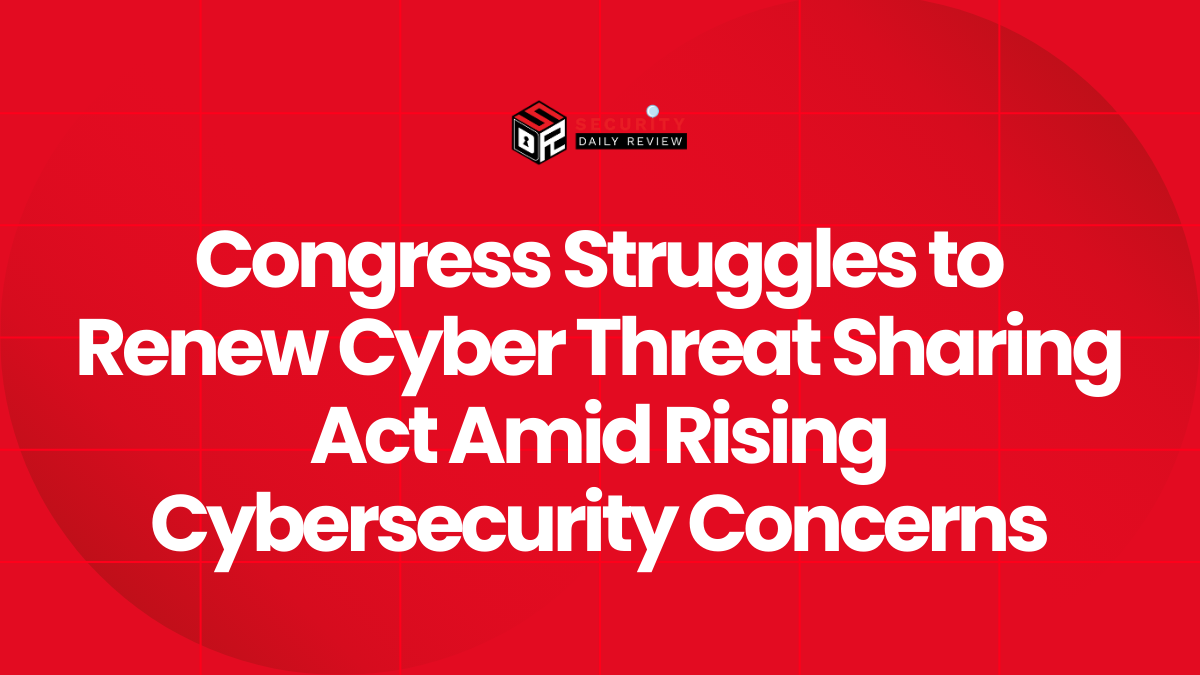As the September 30, 2025, expiration date for the Cybersecurity Information Sharing Act (CISA) of 2015 rapidly approaches, congressional leaders are struggling to renew the vital legislation amid rising cybersecurity risks and political gridlock. The situation highlights the growing divide within the legislative branch over the future of national cybersecurity strategy and threatens to disrupt the public-private threat sharing ecosystem that CISA helped establish over the past decade.
The Cybersecurity Information Sharing Act Is Set To Expire, And Congress Is Not Aligned On A Renewal Path
CISA 2015 Creates A Legal Foundation For Cyber Threat Intelligence Sharing
Originally passed in the wake of the 2015 Office of Personnel Management (OPM) breach, CISA was designed to break down legal and procedural barriers between private companies and the federal government in sharing timely and relevant cyber threat intelligence. The law provides liability protections to companies that voluntarily share cybersecurity threat indicators—such as malware signatures, suspected IP addresses involved in attacks, or emerging software vulnerabilities—with the Department of Homeland Security (DHS). These protections aim to enable real-time collaboration without fear of litigation or regulatory blowback.
Over the years, CISA has become an essential element of the United States’ collective defense against foreign adversaries and cybercriminal actors. The voluntary structure, backed by legal safeguards, has been widely credited for improving early warning capabilities and defensive coordination between sectors critical to the nation’s infrastructure.
Senator Rand Paul’s Opposition Complicates Efforts To Pass A Clean Reauthorization
Proposed Changes Risk Breaking Consensus And Delaying Action
While the Biden administration has advocated for a straightforward reauthorization of CISA as part of a short-term budget plan, resistance in the Senate is slowing progress. Senator Rand Paul (R-Ky.), who chairs the Senate Homeland Security Committee, has blocked scheduled votes on a renewal and is drafting alternative legislation. His draft proposes extending the law by two years but introduces provisions to curtail DHS’s activities related to foreign disinformation, a move that diverges from the act’s cybersecurity focus and raises concerns about mission creep and politicization.
Key lawmakers, including Senator Gary Peters (D-MI), have criticized Paul’s approach as out of sync with bipartisan efforts and potentially harmful to national security. As a result of Paul’s actions, a previously planned markup meeting was canceled, halting legislative momentum and heightening the risk that CISA will lapse without an interim solution.
Bipartisan Support Exists, But Compromise Remains Elusive
Multiple Legislative Approaches Compete For Priority
Several proposals are competing for attention in Congress:
- Peters and Senator Mike Rounds (R-SD) introduced a bipartisan Cybersecurity Information Sharing Extension Act that would extend CISA’s protections for ten more years. Their plan preserves the framework’s current structure, reinforcing voluntary collaboration between the private sector and DHS.
- Meanwhile, House Republicans have introduced narrowly tailored proposals to minimize disruption and maintain the current law’s scope with minimal adjustments.
- Senate aides are also considering a one-year extension to avoid immediate expiration while allowing more time for broader negotiations.
Despite these efforts, no bill has reached consensus. The lack of alignment raises operational risks for Security Operations Centers (SOCs), threat intelligence teams, and critical infrastructure sectors that rely on streamlined, trusted cyber threat intelligence sharing.
Industry Groups Warn That Letting CISA Lapse Would Degrade Defensive Capabilities
Private Sector Urges Swift Reauthorization To Maintain Threat Visibility
Multiple industry coalitions, including the Protecting America’s Cyber Networks Coalition and the American Public Power Association, have collectively warned Congress of the consequences of allowing CISA to expire:
- Increased vulnerability to ransomware campaigns, phishing attacks, and nation-state probes.
- Erosion of trust between public and private actors, potentially silencing vital communications out of legal fear.
- Loss of real-time indicators of compromise (IOCs) and diminished situational awareness for energy, financial services, healthcare, transportation, and tech sectors.
In a May 2025 letter, the U.S. Chamber of Commerce emphasized that no Inspector General review has found abuse of personally identifiable information (PII) under CISA’s implementation, strongly supporting the framework’s integrity and legal compliance.
“Failure to extend this law will unnecessarily close vital information-sharing pathways,” states the coalition letter. “This will put all Americans at greater risk from a growing number of sophisticated cyber attackers.”
Confusion And Acronyms Add To Legislative Uncertainty
Overlap Between CISA The Law And CISA The Agency Muddy The Debate
Ironically, some of the confusion surrounding the law’s reauthorization stems from its acronym. CISA, the law, is often conflated with the Cybersecurity and Infrastructure Security Agency (also CISA), the DHS agency responsible for managing information sharing programs. This confusion has crept into political discourse and legislative hearings, complicating public comprehension and underscoring the need for clearer communication.
The Clock Is Ticking For Congress And National Cyber Resilience
Inaction Would Unravel Hard-Won Cybersecurity Gains
With less than two weeks remaining before CISA 2015 reaches its sunset, cybersecurity leaders, bipartisan lawmakers, and private sector stakeholders are urging immediate action. Whether through a short-term extension, a long-term bipartisan reauthorization, or a new legislative compromise, the stakes are high. A lapse in the law could leave blind spots in national cyber situational awareness and jeopardize years of trust-building between government entities and enterprise SOCs.
If Congress expects to maintain even its current posture against growing cyber threats, it must first preserve the legal foundation that made today’s information sharing possible. Letting CISA expire without a viable alternative is more than legislative failure—it’s a strategic risk.









